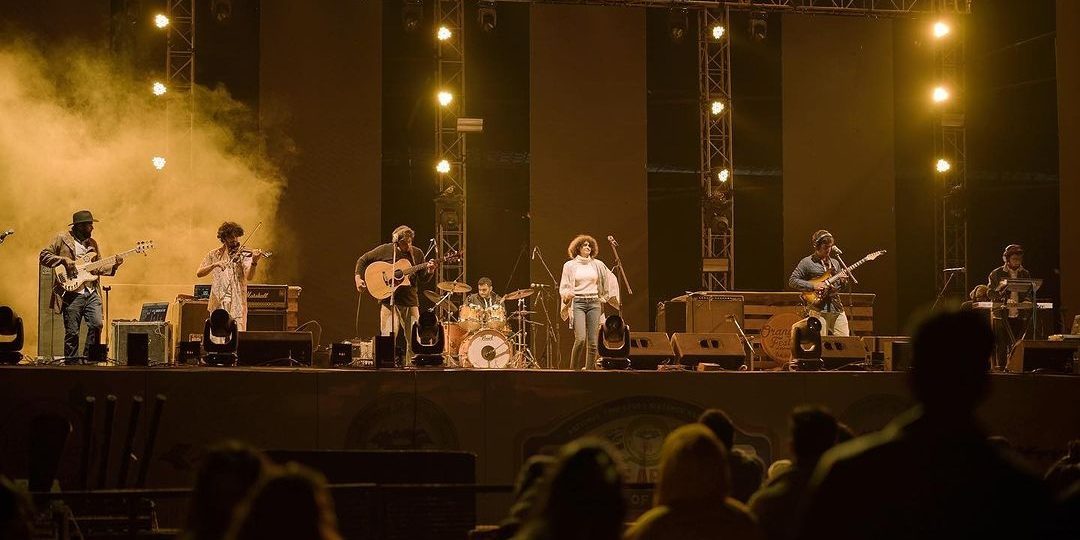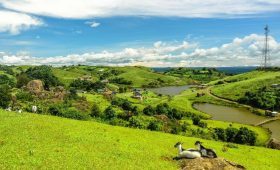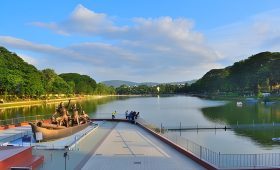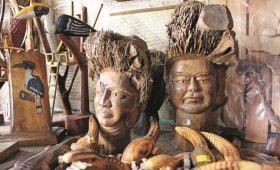The Orange Festival in Arunachal Pradesh is a vibrant celebration showcasing the state’s lush orange orchards and rich cultural heritage. Held annually in Dambuk, Lower Dibang Valley District, this event promotes the local orange industry and fosters community development.
The Dambuk Orange Festival typically takes place in December, featuring an orange exhibition and sales, cultural performances, music, and dance. Visitors can also explore traditional handicrafts and food stalls, participate in orange-themed competitions and games, and attend workshops on orange cultivation and processing.
Immerse yourself in Arunachal’s breathtaking natural beauty, indulge in local delicacies, and explore the region’s unique traditions at the Orange Festival. This event is a great opportunity to support local farmers, artisans, and the community.
While attending the Dambuk Orange Festival, consider exploring nearby attractions, such as river rafting, trekking, and hiking. The festival is easily accessible via NH-37 and NH-52, with the nearest airport and railway station located in Dibrugarh and Tinsukia, Assam.
Note that the Orange Festival is distinct from Nagaland festivals, offering a unique experience in Arunachal Pradesh’s picturesque Dambuk valley. Don’t miss the Orange Festival for an unforgettable experience amidst the orange orchards.
About Dambuk
Dambuk, a picturesque valley in the Lower Dibang Valley District of Arunachal Pradesh, India, is nestled amidst the majestic Eastern Himalayas. Located at an altitude of 400 meters above sea level, Dambuk is situated approximately 30 kilometers from Roing, the district headquarters.

Geographical Details:
– Latitude: 28.2333° N
– Longitude: 95.5667° E
– Elevation: 400 meters
– Climate: Subtropical
– Nearby rivers: Dibang and Lohit
Historical and Cultural Significance:
Dambuk has a rich cultural heritage, with evidence of ancient settlements and trade routes. The region is home to various ethnic tribes, including the Idu Mishmi, Adi, and Apa Tani. Dambuk’s strategic location facilitated trade between India, Tibet, and Myanmar, making it an important cultural hub.
Local Community and Lifestyle:

The inhabitants of Dambuk primarily engage in agriculture, with orange cultivation being a significant source of income. The local community is known for their warm hospitality, traditional crafts, and vibrant festivals. The Idu Mishmi tribe celebrates various festivals, including the Reh festival, while the Dambuk Orange Festival has become a popular event.
Dambuk Orange Festival:
The Dambuk Orange Festival, held annually in December, showcases the region’s orange production and promotes local artisans. This festival, distinct from Nagaland’s festivals, highlights Dambuk’s unique cultural identity. Visitors can experience:
– Orange exhibition and sales
– Cultural performances and traditional music
– Local handicrafts and cuisine
– Orange-themed competitions and games
Dambuk offers a unique blend of natural beauty, cultural richness, and economic growth. The Dambuk Orange Festival has put this valley on the tourism map, attracting visitors from across India. As you explore Dambuk, discover the warmth of its people, the vibrancy of their culture, and the breathtaking beauty of the surrounding landscape.
History of the Orange Festival
The Dambuk Orange Festival has its roots in the early 2010s, when the Arunachal Pradesh government initiated efforts to promote the state’s orange industry. The festival was formally launched in 2013 to:
1. Showcase Dambuk’s orange production
2. Empower local farmers
3. Boost tourism
4. Preserve traditional culture
Initially, the festival focused on orange cultivation, sales, and local handicrafts. Over time, it evolved to include music, adventure sports, and cultural performances, attracting visitors from across India.
Key milestones:
– 2013: First edition of the festival, with 5,000 attendees
– 2015: Introduction of music performances, featuring local and national artists
– 2017: Adventure sports like zip-lining, dirt biking, and river rafting were added
– 2019: Festival expanded to include cultural workshops, traditional dances, and handicraft exhibitions
– 2020: Festival went virtual due to the pandemic, with online performances and workshops
Today, the Dambuk Orange Festival is a celebrated event, showcasing Arunachal Pradesh’s rich cultural heritage, natural beauty, and economic potential. The festival continues to grow, attracting tourists, entrepreneurs, and artists, while empowering local communities and promoting sustainable development.
The festival’s success has inspired similar initiatives across the Northeast, cementing its position as a flagship event in India’s festival calendar.
Festival Highlights

Music Extravaganza
– Line-up of performers: Local and national artists, folk musicians, and rock bands
– Genres of music: Folk, Rock, Pop, Electronic, and Fusion
Notable performances:
– Previous years: Renowned artists like Indian Ocean, The Local Train, and Naga folk rock band, Tetseo Sisters
– Upcoming edition: Expect performances by popular artists like Raghu Dixit, Thaikkudam Bridge, and more
Adventure Activities
List of adventure sports:
– Zip-lining
– Dirt biking
– River rafting
– ATV riding
– Paramotoring
– Trekking and hiking
Unique blend of music and adventure: Experience the thrill of adventure sports during the day and groove to live music in the evenings
Cultural Experiences

– Traditional dances: Idu Mishmi, Adi, and Apa Tani folk dances
– Crafts: Local artisans showcasing handicrafts, weaving, and woodcarving
– Customs: Interaction with local tribes, learning about their heritage and traditions
– Cultural workshops: Hands-on experience with traditional crafts, music, and danc
Orange Orchards and Local Cuisine
– Tour of orange orchards: Pick fresh oranges and learn about cultivation techniques
Local dishes:
– Traditional Idu Mishmi cuisine: Momo (dumplings), Thukpa (noodle soup), and more
– Local beverages: Traditional rice beer, apple cider, and fresh orange juice
– Overview of local cuisine: Experience the unique flavors and ingredients of Arunachal Pradesh
Additional Highlights
– Beautiful scenery: Breathtaking views of the Eastern Himalayas
– Camping facilities: On-site camping options for a rustic experience
– Local market: Shop for handicrafts, souvenirs, and local products
– Community engagement: Interact with local villagers and support rural development
The Dambuk Orange Festival offers an unparalleled blend of music, adventure, culture, and natural beauty, making it a must-visit event in India’s festival calendar.
Visitor Information
The best time to visit Dambuk is in December, during the Dambuk Orange Festival. To get there, fly into Dibrugarh Airport (130 km) or take the train to Tinsukia Railway Station (120 km), and then take regular buses or taxis to Dambuk (30 km from Roing). You can also check out our complete route guide to Arunachal Pradesh in our website.
For accommodations, choose from on-site camping facilities, budget-friendly guesthouses, and homestays in Dambuk, or luxury resorts and hotels in Roing. Be sure to book in advance.
When traveling to Dambuk, pack warm clothing, rain gear, and sturdy shoes. Respect local customs by dressing modestly and removing shoes in temples and homes. Don’t miss trying local cuisine and drinks, and carry essentials like sunscreen, insect repellent, and power banks. Internet connectivity may be limited, so plan accordingly.
Additional tips include carrying necessary documents (ID, medical certificates, etc.) and following local guidelines for adventure activities. Engage with locals, learn about their culture, and enjoy your visit to the Dambuk Orange Festival!



